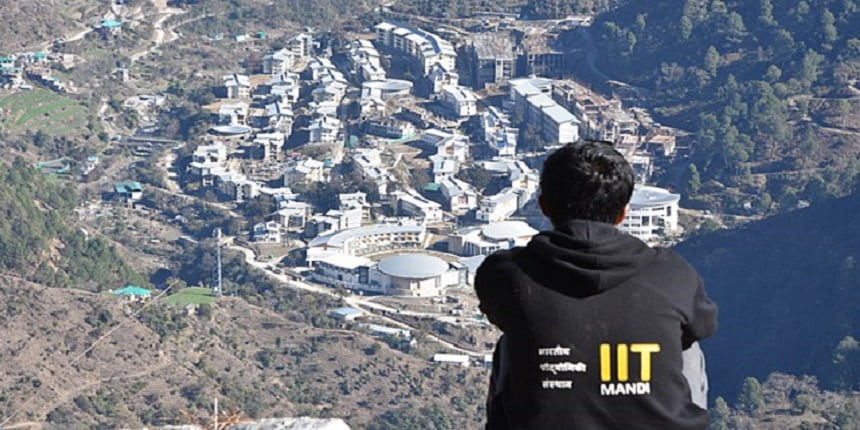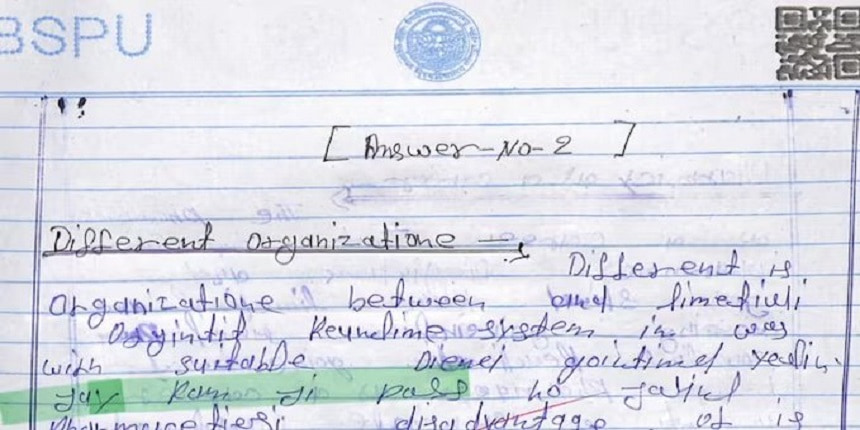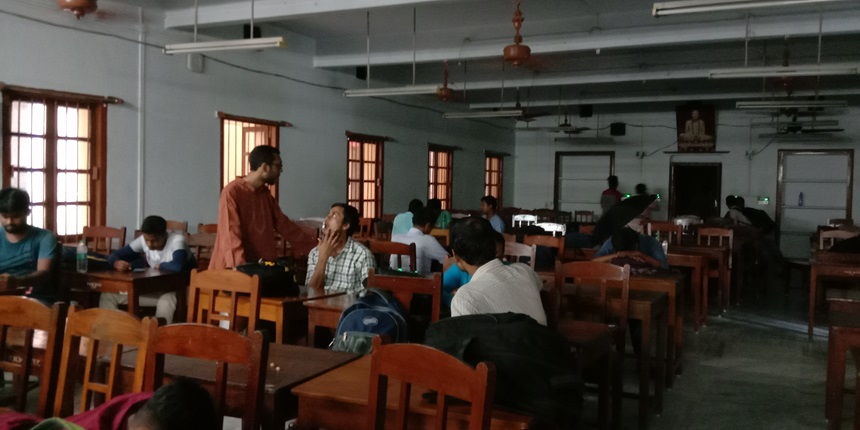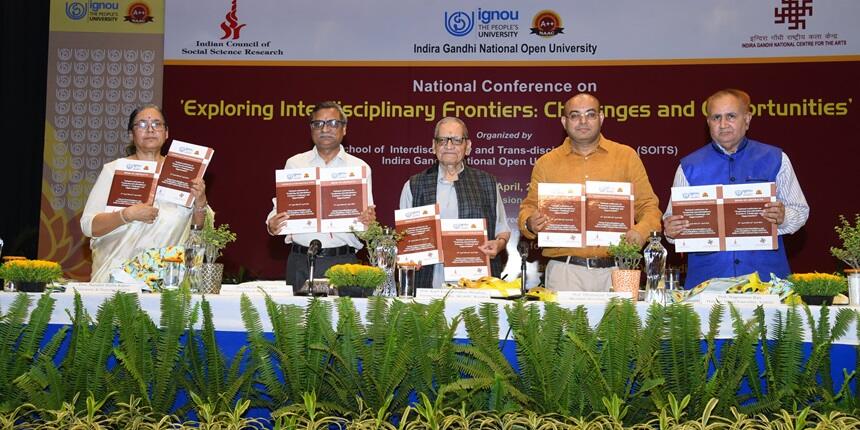Degree recognition, more funds, NEP 2020: Becoming universities has changed Sanskrit institutions
Sanskrit universities launch modern courses, offer programmes in other disciplines, implement NEP 2020, after becoming central universities.
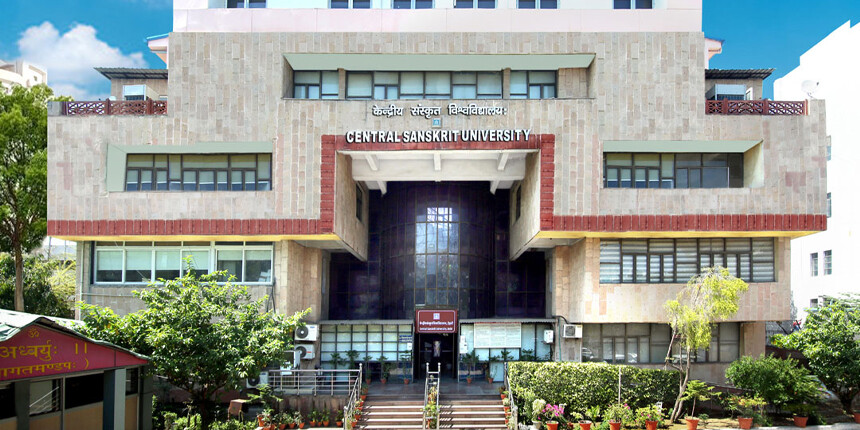 Central Sanskrit University, New Delhi will be starting new modern, skill-based and career oriented programmes like MA in Theatre from this year. (Image: CSU official website)
Central Sanskrit University, New Delhi will be starting new modern, skill-based and career oriented programmes like MA in Theatre from this year. (Image: CSU official website)Sanjay | July 15, 2023 | 11:47 AM IST
NEW DELHI: Modern skill-based courses, improved infrastructure, autonomy in administration and recognition of degrees – a change of status into central universities has brought these and more to institutions of Sanskrit studies. Three such institutions were converted into full-fledged universities through the Central Sanskrit University Act, 2020. Until then, they were deemed-to-be universities.
The change of status was intended to strengthen the status of Sanskrit language and provide good opportunities to students, said vice-chancellors. With the government's promotion of Indian Knowledge Systems (IKS), Sanskrit universities are carving a more prominent spot for themselves in India’s higher education system.
“As a deemed university we had to get permission from the education ministry for each resolution. Now we have more autonomy and can make decisions on our own. We are also witnessing huge interest of students towards courses in Sanskrit,” said Shrinivasa Varakhedi, vice chancellor, Central Sanskrit University, New Delhi.
New central universities
With the implementation of the 2020 Act, Rashtriya Sanskrit Sansthan, New Delhi, became Central Sanskrit University (CSU); Shri Lal Bahadur Shastri Rashtriya Sanskrit Vidyapeeth, New Delhi became Shri Lal Bahadur Shastri National Sanskrit University (SLBSNSU), New Delhi; and Rashtriya Sanskrit Vidyapeeth, Tirupati became National Sanskrit University (NSU), Tirupati.
While CSU and NSU have seen increase in funding for infrastructure, SLBSNSU is still struggling to acquire land for expansion. Vice chancellors of all the three universities said that they are making changes, both academic and administrative, to bring the institutions in line with the National Education Policy (NEP), 2020.
Degree recognition
As central institutions, Sanskrit universities are expanding and equipping their campuses with modern infrastructure and adding more seats and courses.
GSR Krishna Murthy, VC of NSU, said that the university took a loan of Rs 67 crore from Higher Education Finance Agency (HEFA) and built two-storeyed buildings for classrooms and hostels for 500 students.
“Compared to earlier times, we are getting more funds now. We are running a few distance learning programmes too. We have increased the number of seats as per demand and we are focusing on filling faculty posts,” he said.
There are 30 departments across four schools at NSU, Tirupati offering over 200 undergraduate (UG), postgraduate (PG) and research programmes through regular and distance modes.
A student of BA Sastri course at NSU who asked not to be named said that the university's hostel facility is good but “classroom infrastructure needs improvement”.
Varakhedi said students often faced problems while producing certificates from the erstwhile deemed-university in recruitment drives. “Lot of questions were raised on the validity and legalities of our university’s degree. The Defence ministry was not allowing students of deemed universities to apply for priests' posts due to some issues. The issue was resolved after I wrote to them and informed them about our central university status. Many students benefited. Now, our students will get higher recognition and our certificates will be valued more,” he said.
Also Read | Centre spent 16 times the funds promoting Sanskrit in 2021-22 than Tamil
CSU, New Delhi got an A++ grade from the National Assessment and Accreditation Council (NAAC). It has 29 departments across eight schools and offers more than 200 UG, PG and research programmes. Apart from its headquarters and main campus in the national capital, CSU has 10 campuses and 83 affiliated colleges across the country.
College affiliations
Infrastructure is still a big problem at SLBSNSU but it is expanding its presence through affiliated colleges.
Murlimanohar Pathak, VC of SLBSNSU, said that despite the pandemic, the university adopted several provisions of the NEP 2020.
“Our university has just 11 acres and we have requested the central government to provide us 200 acres for smooth functioning of academic and administrative work,” said Pathak. “We can’t function fully to our potential in such a small space. We wrote to concerned ministries and officials of the central government a year ago and have sent reminders to them as well. The urban development ministry recently replied to us saying that it does not have required land. We will start meeting the officials to get the required piece of land or just 100 acres of land. We don’t have a hostel for female students or a playground.”
For this reason, SLBSNSU students say little has changed in their experience of the institution. A research scholar living in a rented room off campus said: “Only a few research scholars have got hostel accommodation. There are problems related to water, sanitation, playground and infrastructure in the university.” However, researchers have started getting scholarships.
In 2022, the university located in Katwaria Sarai of New Delhi finalised the rules and guidelines related to affiliation and six colleges in different states were affiliated.
“We have ‘national’ word in our university and I thought why should we limit our presence in Delhi only. We will be providing affiliation to more colleges in this academic session. It was not possible when we were deemed universities. In terms of infrastructure, we made five smart classrooms for hybrid-mode of teaching,” said Pathak.
SLBSNSU has received an “A” from NAAC. Its five schools have 21 departments between them and offer nearly 300 courses ranging from certificates to research programmes.
Courses and curriculum
The Sanskrit universities are now offering courses which are interdisciplinary and updating their syllabi to conform to the NEP.
CSU will be starting new modern, skill-based and career oriented programmes like MA in Theatre from this year.
“There was a wrong assumption that students do not want to study Sanskrit. Last year, we admitted students through the CUET [Common University Entrance Test] and for 3,000-odd seats, we got 9,000 applications and 7,000 wrote the examination. We received around 4,000 applications for our 700 seats BEd programme. So, there is a demand for Sanskrit courses. After becoming a central university, we are becoming a multi-subject university in line with NEP 2020. There is a huge demand for faculty in the Indian Knowledge System (IKS) and Sanskit universities are acting as creators of the next generation of teachers,” Varakhedi explained.
NSU has plans to establish a cultural heritage center and will start the Integrated Teachers Education Programme (ITEP) and other inter-disciplinary programmes from 2023-24, said Murthy.
Also Read | UGC paves way for university-industry partnerships for research, paid internships, funds
Pathak said that even though SLBSNSU lacks a big campus, it has started postgraduate courses in Sociology, Hindi, Hindu studies and English, and one-year PG diplomas in Yoga and naturopathy.
“We are constantly updating our syllabi to make them interdisciplinary and multi-skilled. We have implemented Academic Bank of Credits (ABC). We have plans to open more Ayurveda and Yoga related courses. After filling the vacant posts of teachers and administrators by July 2023, we will demand from the education ministry to allow us to open a few more courses, increase seats and faculty count,” he said.
Student placements
All three Sanskrit universities have dedicated career and placement cells.
“Our students got internships at IKS and four astrology research projects have been sanctioned. Our students are also getting jobs in different sectors through the placement cell,” Murthy said. The data submitted by NSU, Tirupati to National Institution Ranking Framework (NIRF) shows that no UG and PG student got placed in the 2021-22 academic session.
At CSU, New Delhi, a total of 435 out of 835 UG students received placements at a median salary of Rs 18,000 and 471 out of 872 PG students got jobs at a median salary of Rs 24,000 in the academic session 2021-22.
“Earlier, there was no career and placement cell but I started it. We are calling some prominent job providers and training students for different sectors,” said Varakhedi.
Also Read | Sanskrit education to create more employment opportunities for students: Dharmendra Pradhan
Pathak said that the administration is working towards inviting companies for campus placements. Annual Quality Assurance Report (AQAR) document of SLBSNSU for the academic year 2020-21, the latest available, shows that no student was placed at SLBSNSU.
Follow us for the latest education news on colleges and universities, admission, courses, exams, research, education policies, study abroad and more..
To get in touch, write to us at news@careers360.com.
